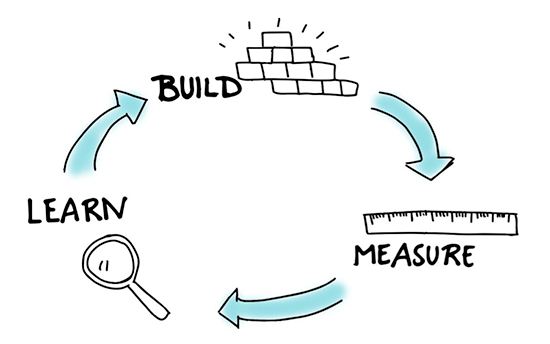Startups are the lifeblood of innovation and economic growth, but the harsh reality is that most of them fail. The reasons behind these failures are often predictable and avoidable. This blog explores the most common reasons startups fail and provides actionable steps for wise founders to sidestep these pitfalls and build resilient, successful businesses.
1. Lack of Market Need
The Pitfall:
Many startups develop products or services without confirming a genuine market need. They create solutions in search of problems rather than addressing existing pain points.
The Solution:
- Market Research: Conduct thorough market research to understand your target audience’s needs and preferences.
- Minimum Viable Product (MVP): Develop an MVP to test the market response before investing heavily in development.
- Feedback Loop: Continuously gather feedback from early adopters and iterate based on their input.
Lemnos Tool:
User Persona Map Kit: Use this kit to create detailed user personas that help empathize with your customers and build products and services tailored to their needs.

2. Running Out of Cash
The Pitfall:
Startups often underestimate the amount of capital required to reach profitability. They either overestimate revenue projections or underestimate expenses, leading to a cash crunch where they burn more than they earn.
The Solution:
- Realistic Financial Planning: Create detailed financial projections with conservative estimates.
- Fundraising Strategy: Develop a robust fundraising strategy that includes diverse sources of capital, such as venture capital, angel investors, and grants.
- Cost Management: Implement strict cost management practices and avoid unnecessary expenditures.
Lemnos Tool:
- Pitch Deck & Elevator Pitch Planning Kit: Utilize this kit to create a compelling pitch deck that can attract investors and secure necessary funding.

3. Poor Team Dynamics
The Pitfall:
A great idea can be torpedoed by a dysfunctional team. Conflicts, lack of complementary skills, and misaligned visions can all contribute to a startup’s downfall.
The Solution:
- Strong Founding Team: Assemble a founding team with complementary skills and shared vision.
- Clear Roles and Responsibilities: Define clear roles and responsibilities to avoid overlaps and conflicts.
- Healthy Culture: Foster a positive, collaborative culture that encourages open communication and conflict resolution.

4. Inadequate Marketing and Sales
The Pitfall:
Many startups fail because they don’t know how to effectively market their product or service. Even a great product needs strategic marketing to reach its audience.
The Solution:
- Marketing Strategy: Develop a comprehensive marketing strategy that includes digital marketing, content marketing, and public relations.
- Sales Processes: Establish efficient sales processes and train your team to convert leads into customers.
- Customer Engagement: Engage with your customers through various channels to build brand loyalty and attract new customers.
Lemnos Tool:
- Business Model and Value Proposition Canvas: Use this kit to outline your business model and value proposition, ensuring your marketing strategies align with your core business values and audience needs.
5. Ignoring Customer Feedback
The Pitfall:
Ignoring or dismissing customer feedback can lead to products that don’t meet market needs, resulting in lost customers and revenue.
The Solution:
- Feedback Channels: Create multiple channels for customers to provide feedback.
- Act on Feedback: Analyze feedback and make necessary adjustments to your product or service.
- Customer-Centric Approach: Adopt a customer-centric approach where customer satisfaction is a priority in decision-making.
Lemnos Tool:
- User Persona Map Kit: Utilize this kit to understand your customers deeply and integrate their feedback into your product development process.

6. Misaligned Product and Market
The Pitfall:
Startups sometimes misjudge their market fit, leading to a product that doesn’t resonate with the target audience.
The Solution:
- Market Fit Analysis: Regularly analyze market trends and customer needs to ensure your product aligns with market demand.
- Pivot When Necessary: Be prepared to pivot your business model or product based on market feedback and performance.
- Continuous Improvement: Continuously improve your product to meet evolving market needs.
Lemnos Tool:
- Startup Validation Kit: Use this kit to validate your business idea and ensure it fits the market before fully committing resources.

7. Failure to Scale
The Pitfall:
A startup may find initial success but fail to scale due to lack of planning, resources, or understanding of scalable business models.
The Solution:
- Scalable Infrastructure: Invest in scalable infrastructure from the beginning.
- Growth Strategy: Develop a clear growth strategy that includes scaling operations, expanding the customer base, and entering new markets.
- Adaptability: Stay adaptable and be ready to modify strategies as the company grows.
Lemnos Tool:
- Business Model and Value Proposition Canvas: Use this kit to map out the core of your business, including revenue and cost streams, key activities, and partners, ensuring a scalable and sustainable model.
Conclusion
While the path to startup success is fraught with challenges, understanding the common reasons for failure can help founders navigate these obstacles more effectively. By addressing market needs, managing finances wisely, building strong teams, executing effective marketing strategies, valuing customer feedback, ensuring market alignment, and planning for scalability, startups can increase their chances of success.
Are you ready to build a resilient startup? Explore our resource hub with all the necessary tools at lemnos.pro/forge or reach out to us at hello@lemnos.pro.



